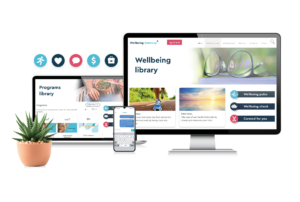In children, sleep is needed to support growth and development and in adults, sleep plays an important role in improving cognitive function and physical health.
Sleep also has an impact on other lifestyle choices including exercise and nutrition.
For example, people with poor quality sleep or irregular sleeping patterns are more likely to exercise less and consume more foods with high sugar, fat and salt content.
Did you know?
30% of Australian’s sleep less than the recommended 7-9 hours per night.
Some scientists argue that sleep is the most important part of our healthcare regime.
Quality sleep is a mood booster, supports emotional regulation, cognitive function, and resilience to stress.
It also reduces your risk of developing diseases including heart disease, obesity and dementia.
When sleep suffers, so does our overall wellbeing and mental health.
How much sleep do I need?
The recommended sleep duration varies by age:
- Pre-schoolers (3–5 years): 10–13 hours per night
- Children (6–13 years): 9–11 hours per night
- Teenagers (14–17 years): 8–10 hours per night
- Adults (men and women): 7–9 hours per night
(Source: 1 in 4 young Australians aren’t satisfied with their sleep)
Benefits of a good sleep routine
Good quality and consistent sleep can significantly improve wellbeing and has many benefits, including:
- Enhanced memory, concentration and cognitive function
- Improved mood, emotional stability, stress management and resilience
- Stronger immune function and increased energy
- Reduced risk of mental health conditions such as anxiety and depression
- Better decision-making and productivity
Top tips for a good night’s sleep
In today’s busy world it can seem like there is more and more to do during the day, so sleep needs to be sacrificed.
On the contrary, sleep should be prioritised to ensure you have enough energy to tackle the tasks of the day.
Here are some tips that might help:
- Go to bed and wake up at the same time every day—even on weekends.
- Create a routine that signals to your body that it’s time to get ready for sleep. Wind down with relaxing activities like reading or gentle stretching.
- Limit screen time before bed – the blue light screens emit reduces your body’s ability to produce hormones that help you sleep. Avoid phones and tablets at least 30 minutes before sleep. You can also change the settings on your device to reduce blue light at certain times of the day, or use blue light filters.
- Make your bedroom a calm and comfortable sanctuary. Keep it cool, dark, and quiet.
- Avoid caffeine, alcohol, and heavy meals close to bedtime.
Myth buster
Some people think that you can ‘catch up’ on sleep.
While this may be true on occasion (for example, you have a late night or a bad night’s sleep so you have a nap the next day), consistency is key.
Sleeping in on the weekends does not make up for a lack of good quality sleep during the week.
The information contained in this article is for educational and informational purposes only and is not intended as health, medical or financial advice. Always consult a qualified health provider with any questions you may have regarding your health or a medical condition.
Something on your mind?
If you require counselling, coaching or support, our clinicians are available to help.
Call, chat or request an appointment online.
Looking for more resources?
Register for Wellbeing Gateway. Your personalised mental health and wellbeing companion.

